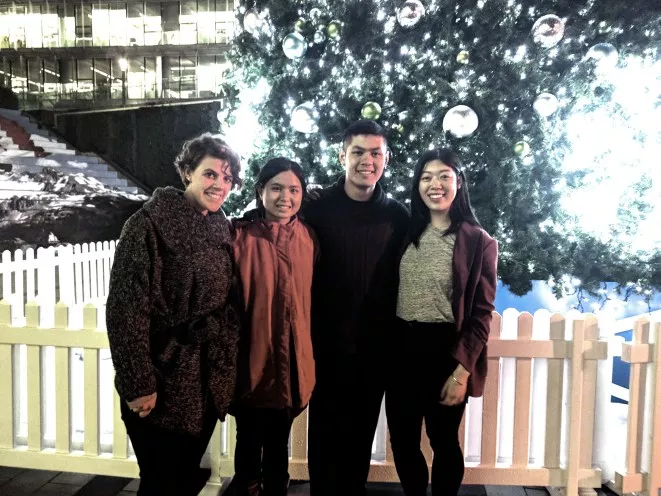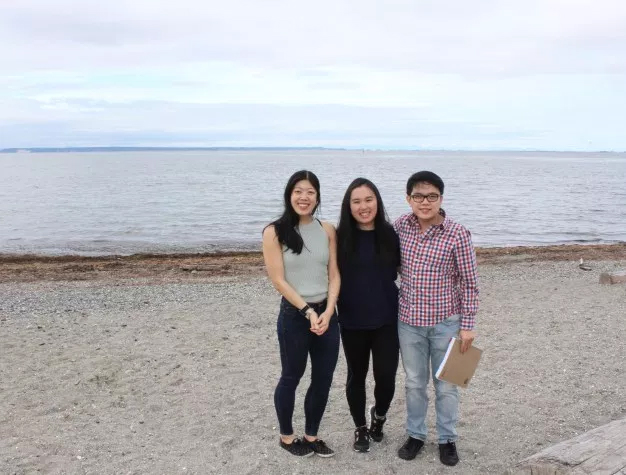Recent Health Change Lab alumna, Benta Cheng, sat down with Zoya Jiwa from the RADIUS team to share how her program experiences inspired her to participate in the Map the System Challenge: an international research competition that asks students to think differently about social change. The team registration deadline for Map the System is Monday January 22nd. Find details here!
ZJ: How did you hear about Change Lab, and what inspired you to apply?
BC: When I first heard of Health Change Lab (HCL), it was from a friend and alumnus from the HCL cohort a year prior. From our discussions, I immediately understood that HCL would be a breath of fresh air from my typical undergraduate lectures. In partnership with Fraser Health and the City of Surrey, HCL brings together students from different faculties to define and propose prototypes to address a community problem within the Surrey context. I was drawn to the program since it seemed experiential, challenging, and most importantly, like it would be an opportunity to consolidate my learning into a community based project with an interdisciplinary team of students. After four years as a Health Science student, I was excited to work alongside students from other faculties, all bringing their own perspectives and strengths. The mention of “Change” was also both exciting and humbling—to think that I would be able to work with closely with a community to instill positive change through a capstone project left me eager to apply and begin.
ZJ: What were your expectations going into the program?
As the semester progressed, I uncovered surprising discrepancies from my initial impressions. The "Change" in Health Change Lab was preferring to positive change within myself.
Benita Cheng Tweet
BC, cont: The professors wanted to see us growing fast and failing fast. Unconventionally, failing and respectful conflict was encouraged and not looked down upon. My peers and professors created such a safe space for me to improve my public speaking, learn to give constructive and respectful criticism, build effective business skills, and so much more. My classmates supported one another through our prototyping and pivots as we navigated our respective problem areas. Overall, I quickly came to understand that the magnitude of my self-improvement and growth would determine my success in the course.
ZJ: Sounds like a transformational realization early on in the program! Who was on your team?
BC: My team consisted of an International Studies student, an IAT student, and two Health Sciences students (including myself). Although our angles were different, we came together with an initial passion for youth mental health.
ZJ: What idea did you start with, and what ended up being your final project?
BC: After numerous expert and user interviews, coupled with mind maps and root cause analyses galore, we realized there were a number of seemingly indirect but effective approaches to support young people as they grappled with becoming an adult, navigating their life post-secondary school, landing that first job, among other struggles!

Our final prototype was a Maker School for youth adults to engage with one another and with mentors through future-ready skill building. The Maker School idea is a union between a traditional Makerspace and a youth-centered education space. This space wouldn’t just be for hobbyists, but also for young people who wanted to try their hand at making things in a low-commitment space.
ZJ: Wow, what a journey! What was it like to present your final project and wrap up the program?
BC: During our final presentation, each team proudly presented their final prototypes in front of a panel consisting of business professionals, City of Surrey representatives, and Fraser Health delegates. As nerve-wracking as it was, seeing the final product and how far we had all come in the semester was extremely fulfilling.
During our last class, there was a sense of melancholy as we sat in a circle with our instructors watching Space Kittens on YouTube and feasting on potluck food. One by one, we shared our final thoughts about the course and how we’ve changed and grown. There were tears, laughter, and lots of hugging. It was an honour to how my peers were actively working on and overcoming their deepest struggles. I mean, was this course hard? Definitely. My head was in a cloud the whole semester and I never felt like I was on stable ground. However, I truly believe that every undergraduate student should experience something like this. You won’t regret it.

ZJ: In what ways did the lessons you learned in Health Change Lab inspire you to register for Map the System?
BC: Besides introducing and instilling the mental tools necessary to understand and navigate a problem area, the interdisciplinary nature of Health Change Lab also introduced new perspectives to understanding the system where the problem lives. Now, when I look at a problem, instead of feeling “stuck” or overwhelmed, I can unpack and dive deep into potential solution areas, and that is extremely exciting.
ZJ: What is your team researching though the Map the System Challenge?
BC: This is very preliminary, but our team is exploring mental health outcomes (whether this is self-perceived or by clinical diagnosis is still in question) in children of first generation immigrants living in the Greater Vancouver area. This problem space is important to me, firstly, because I am a child of two immigrant parents, but also because of the conversations I’ve had with people in my community about the unique set of struggles they face with respect to family cohesion, cultural displacement, and internalizing the struggles of their parents. My team and I are looking forward to learning more about this population.
ZJ: What advice would you offer other students who are curious about changemaking at SFU?
BC: To any student who wants to engage in changemaking, you’ve already taken the first step through being curious! There are many opportunities to engage in changemaking at SFU if you look for them. In fact, every year (every month, even!), more opportunities become available. Reach out to people you admire – they could be professors, peers, or just someone you define as a changemaker. Most people are very open to coffee or a phone call. Since you’re here, check out the RADIUS website! Finally, don’t be afraid to seek experiences offered from other faculties as well.
A warm thank-you to Benta for sharing her experiences! We wish her team all the best with participating in the Map the System Challenge.

